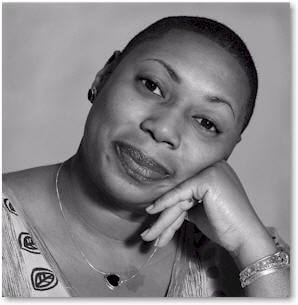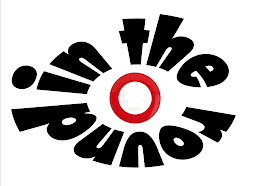
http://www.womenandenvironment.org/aboutwve/whyawomensorganizationWhy a Women's Environmental Organization?
WVE focuses attention on the environmental issues directly affecting women because while harm to our natural environment affects all of us, women and children are more frequently exposed to chemicals in the home, and we carry the health impacts of these exposures in a unique way. Furthermore, women possess important social, political and economic potential to influence environmental policy-making.
Environmental Impacts on Women
Most chemicals used today have never been tested for their risks to human health. Of those that have been tested, most have been evaluated for their acute impacts to adult males in industrial settings. The chemical exposure routes and health impacts on women are different and have historically been routinely overlooked. Trends in certain diseases in women are on the rise for reasons we cannot currently explain, although environmental chemicals are suspected of playing a role. WVE believes that toxic chemical exposures and impacts to women deserve greater attention to better protect public health for all.
First, women are exposed to chemicals differently than men, more frequently encountering toxic chemicals in the home. For example, women are significantly greater users of personal care products including soaps, cosmetics, lotions and the like. Surveys conducted by the Campaign for
Safe Cosmetics indicate that women use an average of nine personal care products each day – exposing themselves to a mixture of over 100 individual chemicals. Twenty-five percent of women (but only one in a hundred men) report using an average of 15 products daily
[i]. Similarly, women are more greatly impacted by the chemicals in cleaning products in the home. While gender roles have changed culturally over time, a national study showed that women today are still doing over 70% of the housework in the average home
[ii]. Women who spend most of their time at home may also have a higher exposure to potentially hazardous cleaning chemicals. Unfortunately there is little regulation determining what kinds of chemicals can be used in these products, leaving the door open to a variety of toxic exposures. These small daily exposures can lead to chemicals building up in our bodies, which add up over a lifetime of use.
Second, women carry the impacts of toxic chemical exposure differently than men. Many chemicals accumulate in fat and women generally have a higher percentage of fat tissue than men. For example, in 2003, the Centers for Disease Control and Prevention (CDC) reported that women, as compared to men, had significantly higher levels of 10 of the 116 toxic chemicals they tested. Three of the 10 chemicals were phthalates – a group of chemicals found commonly in health and beauty products that are linked to birth defects
[iii]. Women are also the first environment for the next generation. Many chemicals stored in a woman’s body are passed onto her child during pregnancy and later through breast-feeding. A 2005 study by the
Environmental Working Group revealed that at least 287 hazardous industrial chemicals pass through the placenta to the fetus
[iv]. Synthetic chemicals are so prevalent in a woman's breast milk today that, if bottled for sale, most breast milk would not pass FDA regulations. While studies still document that breastfeeding remains the best option for building infant immunity, the quantity of chemicals to which we are exposing our young is of grave concern and poses an unnecessary burden on the developing child.
Thirdly, we are also seeing an increase in women’s health problems potentially related to environmental chemical exposure. Over the last two decades, breast cancer rates have risen from a lifetime risk of one in 20 to one in eight
[v]. The onset of puberty is occurring at an earlier age among young girls, with girls starting menstruation on average a few months earlier than they did 40 years ago, and developing breasts up to one to two years earlier
[vi]. Endometriosis, a leading cause of female infertility, is far more common today than it was 50 years ago, affecting an estimated 5.5 million women in the U.S. and Canada
[vii].Furthermore, minority racial populations of women bear a greater burden of chronic diseases in the United States that have been linked with exposure to toxic chemicals. For example, according to the CDC, African-American women are more likely to die of breast cancer than are women of any other racial or ethnic group. Autoimmune diseases such as lupus affect women at a much higher rate than men. Lupus affects African-American women at three times the rate of white women. Lupus is also more common in women of Hispanic, Asian and American Indian descent.
[viii] African American, American Indian, and Puerto Rican infants have higher death rates than white infants. In 1998, the death rate among African-American infants was 2.3 times greater than that among white infants.
Women Influencing Environmental Policy
When surveyed, women consistently rate the environment as one of their greatest concerns. Focus group data gathered in Seattle in 2002 indicate that women are more concerned about dangers posed by toxic chemicals than are men. Nationwide polling shows that women feel this concern regardless of their political party affiliation; a majority of both Democratic and Republican women described themselves as very concerned about chemical pollution in our environment. Generally, women also remain the primary providers of healthcare oversight for their families. A poll conducted by the federal Office of Women’s Health found that nearly two-thirds of women indicated that they alone were responsible for healthcare decisions for their family, and 83% had sole or shared responsibility for financial decisions regarding their family’s health. Women also hold tremendous consumer power. It is estimated that women make 80% of all household buying decisions. Corporations can be persuaded to change their ways when the majority of their consumers make their demands clear.
~~~~~~~~~~~~~~~~~~~~~~~~~~~~~~~~~~~~~~~~~~~~~~~~~~~~~~~~~~~~~
[i] Campaign for Safe Cosmetics Survey, June 2004. Reported at:
http://www.cosmeticsdatabase.com/research/exposures.php[ii] Bird, C (1999). Gender, Household Labor, and Pyschological Distress: The Impact of the Amount and Division of Housework. Journal of Health and Social Behavior, Vol 40, No. 1; March 1999.
[iii] Centers for Disease Control and Prevention(CDC) 2003. Second National Report on Human Exposure to Environmental Chemicals. Department of Health and Human Services. NCEH Pub No. 02-0716. January 2003.
[iv] Environmental Working Group (EWG) 2005. Body Burden 2: The Pollution in Newborns. July 2005. Available at: http://archive.ewg.org/reports/bodyburden2/
[v] Breast Cancer Fund (2008). State of the Evidence: The Connection Between Breast Cancer and the Environment, fifth edition. 2008 Available at: http://www.breastcancerfund.org/publications
[vi] Steingraber, S. (2007). The Falling Age of Puberty. The Breast Cancer Fund. August 2007. Available at: http://www.www.breastcancerfund.org/puberty
[vii] Women’s Foundation of California (2003) Confronting Toxic Contamination in Our Communities: Women’s Health and California’s Future. 2003.
[viii] Centers for Disease Control and Prevention (2008) Eliminate Disparities in Lupus (Online Factsheet). Office of Minority Health and Health Disparities (















